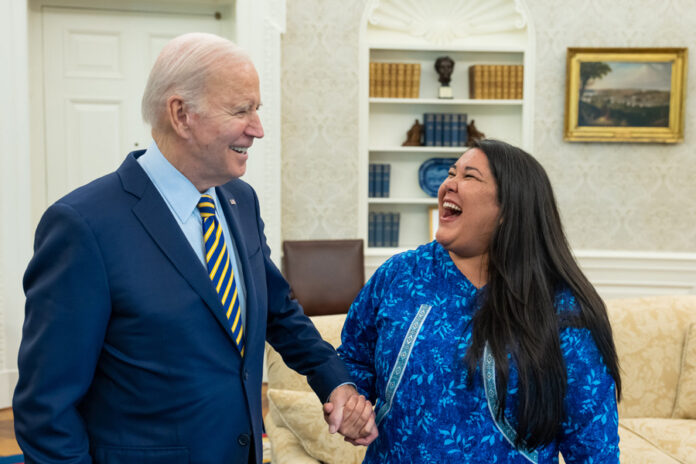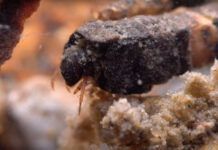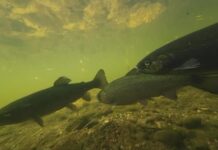Photo via White House Facebook page
Welcome to the latest installment of the Wednesday Wake-Up Call, a roundup of the most pressing conservation issues important to anglers. Working with our friends at Trout Unlimited, Backcountry Hunters & Anglers, the Theodore Roosevelt Conservation Partnership, The Everglades Foundation, Captains for Clean Water, VoteWater.org, and Conservation Hawks (among others), we’ll make sure you’ve got the information you need to understand the issues and form solid opinions.
1. White House Ceremony Celebrates Victory in Bristol Bay
Last Thursday, President Biden spoke in the Rose Garden about recent conservation successes, including the EPA decision earlier this year to effectively shut down any future development of the Pebble Mine site. The President was introduced by United Tribes of Bristol Bay Executive Director Alannah Hurley, who spoke about the efforts of Alaska native peoples over the past two decades:
“But our people stood up and fought back to protect what we hold sacred. President Biden heard our voices,” she said. “He and his team listened to Bristol Bay and our many partners across the nation. And together we stopped the Pebble Mine.”
Int’s important to note, Hurley says, that the job is not done until the region enjoys permanent protections.
Click here for the full story on Alaska Public Media
Related stories:
2. Climate Change May Require a Revision of Everglades Restoration Plans

The Comprehensive Everglades Restoration Plan was authorized by Congress in 2000, but in the more than two decades since, the effects of climate change–especially sea-level rise–may have changed conditions enough to require changes in CERP’s targets.
The National Academies of Sciences, Engineering and Medicine reiterated that climate change needs more attention last November in its latest federally mandated review of progress on Everglades restoration. The scientists said the government agencies had made little progress when it came to incorporating future precipitation and temperature scenarios in planning their projects and that new, climate-based approaches were urgently needed.
“Inadequate consideration of water availability under future conditions and potential variations in the rate of sea-level rise could cause a project to move forward that is not viable under future climate change,” the scientists wrote.
Click here for the full story WUSF public media
Related stories:
3. Six Major Investments in Conservation Announced This Spring

After years of advocating for stronger funding of fish and wildlife habitat improvements, it’s an exciting time for sportsmen and sportswomen—these dollars are beginning to hit the ground and have an impact where we hunt and fish.
In 2021 and 2022, our community played a critical role in ensuring that once-in-a-generation investments in our nation’s infrastructure and climate response also create more quality places to enjoy the outdoors. We pushed for projects that have layered benefits, including stronger fish and wildlife populations, better habitat connectivity, more climate resilience, and safeguards for communities that face increasingly intense flooding, drought, and wildfire.
Now, federal agencies are rolling out their plans to address top-priority projects using these and other funds. Here are six major investments that hunters and anglers should know about.
Click here for more on TRCP.org
Credit: Source link































